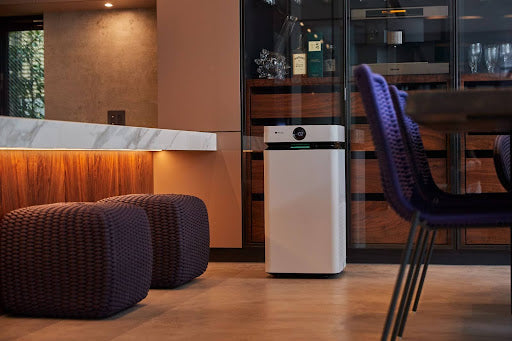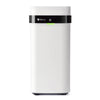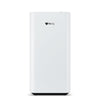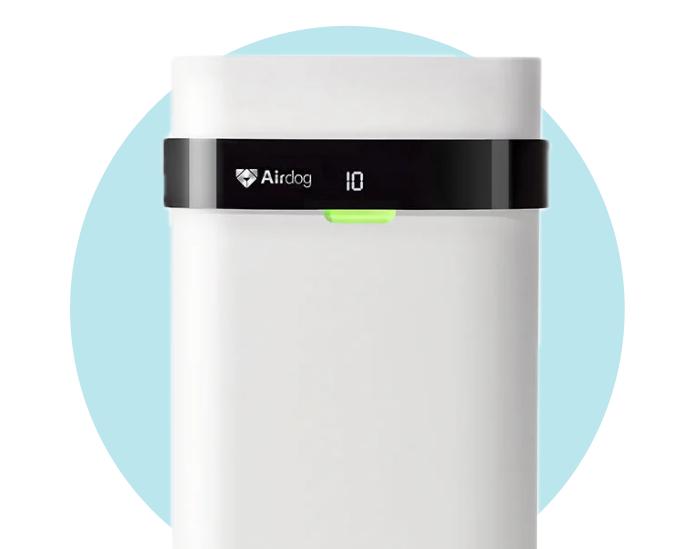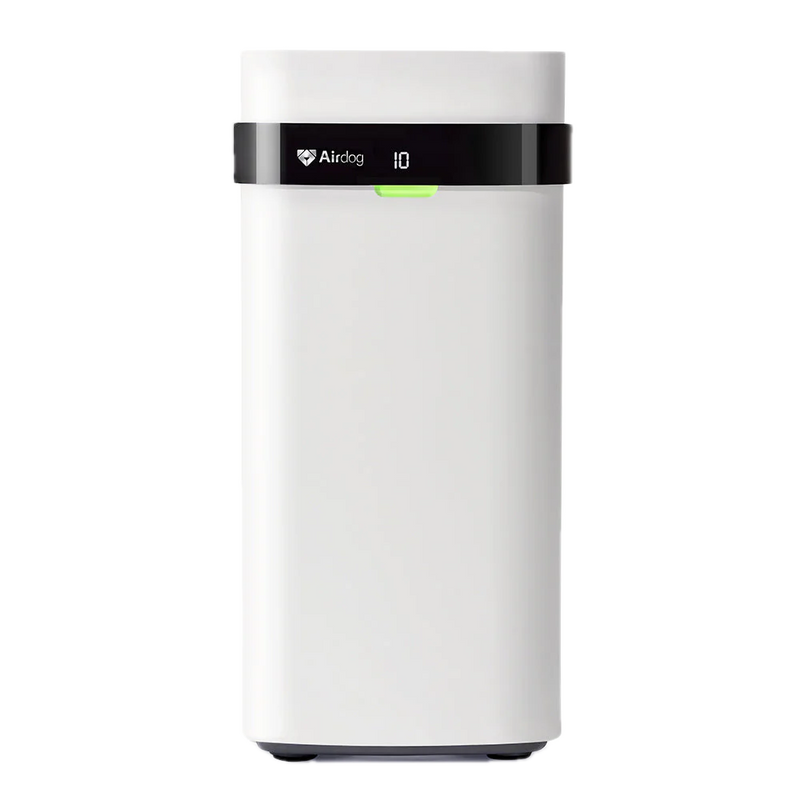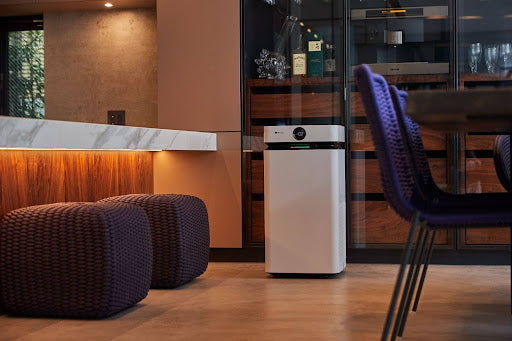
Clean, pure air is crucial for a healthy home environment. However, it is easy that we often underestimate the impact of air pollutants in our home environment. In the modern environment, indoor air can be filled with a variety of pollutants, from dust to allergens, potentially harming our health and comfort. This is why air purifiers would be an important add-on to your home.
Air purifiers are meticulously designed to improve the air quality by effectively removing various airborne contaminants in your home. But how can you determine when you will need an air purifier, and what are some benefits of using one?
Do I Need an Air Purifier? Probably!
Whether you live in a large city, near a busy road, or in a rural area, it is possible that your indoor air quality could use some improvement.
If you start to notice that no matter how often you clean your home, dust and odor lingers or the air feels stuffy, it might be time to invest in an air purifier.
The filtration technology within these units will help relieve allergy symptoms by collecting pet dander, bacteria, and other pollutants in your home’s air. By recognizing these signs, you can determine if investing in an air purifier is the best option for your home and family. Air purifiers provide a simple, sustainable solution that provides you with clean air while eliminating the signs of poor air quality.
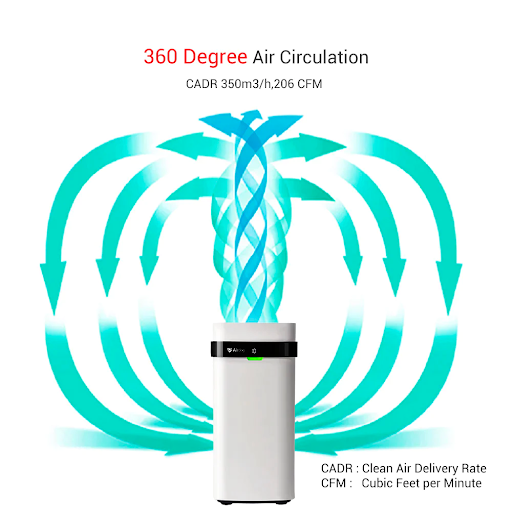
Source: Airdog
How do Air Purifiers Work?
Air purifiers function as air cleaning systems, which effectively remove various contaminants from the air by drawing in air from your surroundings with a fan and passing it through one or more filters to re-circulate the cleaner air back into the room.
This process is repeated multiple times while the unit is running. Most air purifiers have different settings that customize the airflow intake depending on the needs of your home.
Check-in here to see our other article about just What do Air Purifiers Do!
The Technology of Air Purifiers
Typical air purifiers, which are usually equipped with HEPA filters, operate as effective mechanical filters to catch airborne particles in flowing air.
HEPA Filters
HEPA filters have high-density mesh screens capable of trapping microorganisms, dust, pollen, pet dander, and tiny particles as small as 0.3 microns in size, according to the EPA. However, HEPA filters are mechanical filters that can become clogged over time, which reduces efficiency and airflow unless periodic cleaning or replacement.
TPA Purification Technology
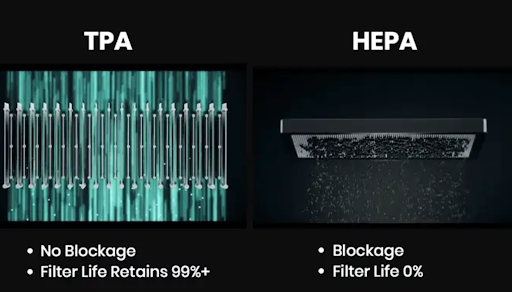
Source: Airdog
In contrast, Airdog provides an innovative air purification solution with its patented TPA ("two-pole active") technology. Unlike traditional HEPA filters, TPA filters use an active filtration process that generates a high-voltage electric field to electrify and destroy harmful particles, attracting them to washable collecting plates.
This approach results in up to 99.9% elimination of harmful particles and toxins, including ultra-fine PM 2.5 particles, while also reducing the plastic waste from being discarded.
Moreover, Airdog's vertical airflow design ensures that the filters do not obstruct the airflow, preventing clogs and delivering consistent, quiet, and highly efficient performance. The TPA filters also excel in purifying an extensive range of particles, from minuscule 0.0146 micron particles to larger contaminants like pollen and pet hair.
Benefits of Using an Air Purifier
Due to this filtration process, using an air purifier offers a multitude of benefits for your home and overall health. These devices effectively remove airborne contaminants including but not limited to:
- Allergens
- Dust
- Pollen
- Smoke
- Common Household Odors
Leading to improved indoor air quality. Consequently, individuals with allergies or respiratory issues experience relief, and the risk of infections is greatly reduced.
Additionally, air purifiers can eliminate unpleasant odors, creating a healthier living environment, which can help with better sleep quality and enhanced well-being. They can also protect against harmful pollutants such as chemicals and volatile organic compounds (VOCs).
Overall, air purifiers contribute to a healthier and more comfortable living space, making them a valuable addition to any home.
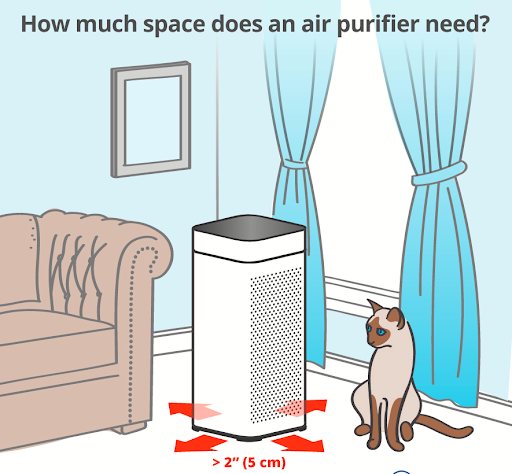
Source: HouseFresh
Where do I put an Air Purifier?
Knowing where to position your air purifier doesn’t have to be complicated. First and foremost, take a look at your home. What room is the common living space or shows the most signs of being excessively dusty or stale? This can be the living room, bedroom, or even the kitchen.
When determining this location it is important to keep in mind the specifications of your air purifier. If the room is too large for the range of the air purifier you can look into a larger unit or choose a smaller room. Now, the specific placement of your unit should have about a foot of space between all sides of the air purifier and walls or furniture. This ensures that the airflow is not blocked or interrupted giving you the best possible results.
Best Times to Run an Air Purifier in Your Home
Most air purifiers are built to run around the clock, some not, this is up to the users (us) to see what the intended use is for our air purifiers so the air can be filtered as it being contaminated, without losing its intended efficiency.
Airdog air purifiers are built to run around the clock, and from our labs, we know that our filters are built to sustain > 10,000 uses with a maximum efficiency loss of 0.1%.
If this is not ideal for your lifestyle, the unit can be run as needed or some air purifiers have an auto feature that will detect when the air quality is declining which will notify the unit to turn on until the pollution is removed.
Sometimes your home just needs a little extra love when cleaning and Air conditioning filters aren’t doing enough. Whether you are learning an air purifier for the first time or you find yourself not getting the best results, these tips will help you understand why, when, and how air purifiers can make a great addition to your home.




